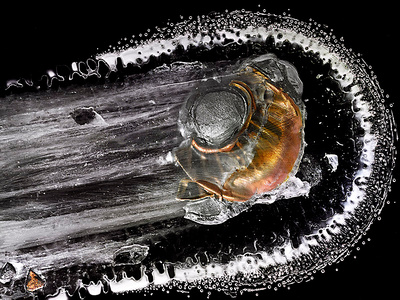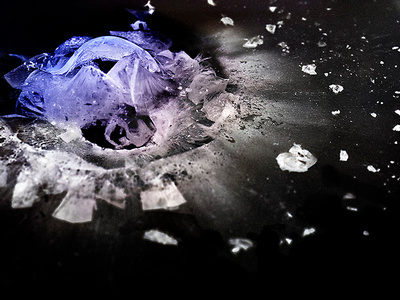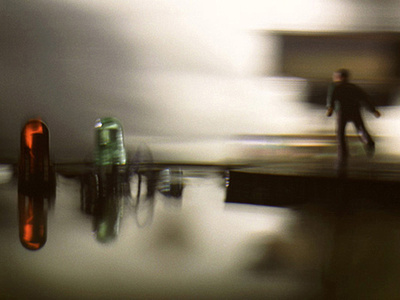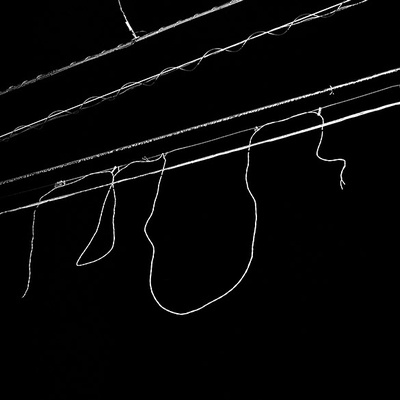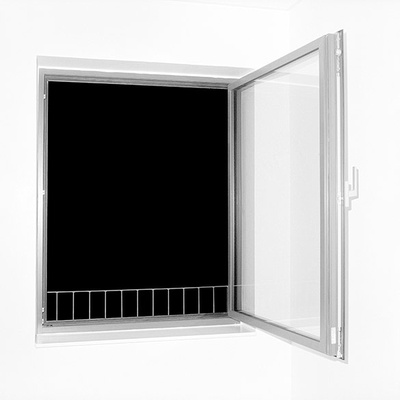Revelator: Ken RockwellKen Rockwell is an (in)famous photography blogger. Interestingly enough, he tends to create some passionate reactions, with people loving or hating him. My take is that that says more about people talking about him than about Rockwell himself. So why the passion? Does he have an intensely unique and antagonizing photography style? Well, no. He does tend to enjoy vivid, highly saturated pictures, but although that's not everybody's favorite style, there's nothing inherently wrong with that. You can enjoy his photographs or not (I'm not overly keen to be honest), but that's not what elicits so many reactions. What drives people crazy is his writing. Because his is a strongly opinionated blog. And it makes for a fine read in my view. You see, his blog consists by and large of equipment reviews, and occasional photography tips (often targeted towards beginners or basic issues, although he has some very thorough articles too). And he enjoys making his opinions - some of which are outlandish - known loud and clear, and in frequently outrageous terms. A few examples: - In his Leica section, listing reviews of Leica cameras, he includes the Fuji X100S, commenting "the future of LEICA photography. Not M-Mount; better" - In his article about lens sharpness, he states (and it's the gist of the article) "lens sharpness doesn't matter" - He has an article entitled "Fart for Fantastic photos" - He routinely states, against common wisdom, that shooting Raw is a waste of time and that you should shoot JPEG. He often refers to film as Real raw - He calls Program mode Professional mode, often stating that pros never use manual mode. - Etc. All of this seems to rub a lot of people the wrong way, and they get dismissive of Rockwell. Internet forums are full of people criticizing and hating him. There are entire webpages dedicated to telling people not to trust Rockwell. Because he goes against common knowledge, provides advice most people (including myself quite frequently) disagree with, etc. That would be understandable if Rockwell didn't so often have his tongue planted firmly in his cheek and wasn't using hyperbole to communicate extremely valid points. The main gist of his blog and of most of what he writes boils down to "stop thinking your camera (or related accessory) is going to take great pictures. You are the one taking great (or lame) pictures". And in this day of internet commentary focused so much on what you should buy (and how you won't get by without the latest and greatest), he constantly strives to remind people that sure, great gear is nice, but it won't do anything if you can't use it, and energy is often better spent taking pictures rather than figuring whether this or that lense is "the one". Interestingly enough, although many people accuse him of just wanting to make money through advertising and kickbacks - which might or might not be true - he often seems to tell people not to invest too much in their gear. Ironically, that doesn't stop him from providing some of the most useful, convincing and thorough gear reviews available. What all those hate pages about him miss is that most of his gear reviews are consistent with the general consensus - albeit with much more emphasis and hyperbole. Sure he often knocks Leica, but to be honest, it's refreshing to read a site that doesn't constantly make you feel like you're missing out by not having one. And despite his constant reminding that the technical aspects are not the sole determining factor in a great picture, his reviews cover all the technical ground in good detail. So sure, his site needs to be taken with a pinch (or even a spoonful) of salt, but it's a fun and useful read. Don't use it as your only source, but seriously, could you recommend any website as your only source on any subject matter? Revealing: Deborah BayDeborah Bay is an emerging photographer that has won well-deserved praise for her "The Big Bang" series. While her other work is equally interesting, I'll focus mainly on that series.
As someone passionate about contrast in all its meanings when related to photography, I love the stark and shocking contrast between the quiet and peaceful beauty of the pictures and the violence of what they ultimately depict. While these are controlled shootings of firearms and not acts of violence being represented, they are still remnants of powerful events, and document the usage of destructive force, and the (literal) impact it has. Yet they seem quiet and peaceful, resembling tranquil galaxies more than bloody murder. The sheer beauty is exquisite and the color treatment greatly - but subtly - highlights it.
As such, we are introduced to Bay's work as an illustration of photography as an art of the unexpected. Beauty reveals itself in unlikely places, and the debris of a firearm being shot certainly was an unexpected place to look for as far as I am concerned.
Revealing: Marten LangeA lot of my favorite photographers have a sociological or psychological aspect to their work. This doesn't apply to Marten Lange, who's work is intriguing and bordering on the conceptual. But that doesn't stop his work from being fascinating.
And yet, Lange's work is fascinating. The interplay between the very light and very dark make his pictures very interesting even if one can hardly care about the subjects themselves. The trivial and ordinary becomes fascinating, not on the level of what it means, but on the simple aesthetic level of what appears when the trivial is captured in stark black and white. Indeed, Lange demonstrates how photography can transform reality, or at least, reveal some underlying aspect of it.
Revealed: Henri Cartier-BressonA blog post is always frustrating in that one has to choose what to address about the subject at hand, necessarily leaving a lot unexamined. This is true for all our subjects, but becomes truly excruciating when trying to discuss a photographer such as Henri Cartier-Bresson. My apologies for all that is left unsaid. In particular, Henri-Cartier Bresson is a man whose influence is felt not only through his pictures per se, but also through his attitudes and ideas. I'll focus on those, leaving deeper analysis of his pictures to someone else - or some other time. Born in in 1908 and deceased in 2004, Cartier-Bresson was "only" active in photography from the 30s to the 70s. Yet his influence is second to none. To many, he is best known as the father of photojournalism, meaning that activity of capturing life and events as they occur in order to tell a (news) story. This is however debatable as many initiatives in the area pre-date Cartier-Bresson, and many other photographers might be given the title. More importantly, I feel his most crucial contributions lie elsewhere - though links with his photo-journalistic practice abound. The key to Cartier-Bresson's works is the obsession with capturing the moment, something unique, and engraving it in eternity with photography. His approach, interested in details and unlikely occurrences is a constant inspiration to all photographers, and is an obvious direct or indirect influence on all street photography. Furthermore, it can be argued that his work ethos was basically an anticipation of the photography by the masses we have seen in recent years. Interest in non-posed "real-life" photography, with little to no editing and use of the (at the time) most accessible tools signaled that photography need not be restricted to an artistic elite only familiar with the most intricate technique. Of course, technique is of critical usefulness, but it is not what makes a great photography, being merely a tool to the higher purpose of creating a great picture. Or, in the words of the master himself: "Technique is important only insofar as you must master it in order to communicate what you see...(...) In any case, people think far too much about techniques and not enough about seeing". This focus on "seeing" should always be in the forefront of any photographer's mind, whether a seasoned professional or an enthusiastic amateur. Time and time again one comes across outstanding photographs that were made with simple techniques or tools less powerful than now available, and conversely other pictures made with painstaking technique and impressive tools that are of little or no interest. While technique and tools are invaluable, they pale in comparison to the impact of the ability to see. That brings us to Cartier-Bresson's decisive moment. In the famous book of the same name, he outlined his theories on photography that resonate to this day. That is quite an astounding feat, especially if one considers the book isn't that easy to buy these days. Out of print for many years, it has now been re-edited, but only in a luxurious and expensive edition that makes it inaccessible to many. Yet its influence was so great that its ideas have percolated into the photographer sub-conscience so to speak. In it, he develops the ideas quoted above, but crucially also the idea that photography is about the decisive moment when one releases the shutter and captures a fleeting moment for all eternity. That is, to him, the moment a photographer is creative. The one where he recognizes a specific event, composition, or any element of significance that he will capture. This has been unsurprisingly both inspirational and controversial. Inspirational because it is all that street photography and photojournalism are about. Controversial because this largely (but not completely) excludes posing and editing/post-processing from the scope of photographic creativity. And that's probably the most interesting part - the discussion and reflexion that can arise from such an idea. I'll likely develop my thoughts about this in a later post, but I'd love to hear yours in the meanwhile! Revelation: How to choose a camera and why it doesn't matter
« Which camera do you use » and « which camera should I buy » are probably among the most frequently heard questions a photographer – even an amateur such as myself – hears when discussing photography with non-photographers. This is an answer to the second question, with an incidental answer to the first on along the way. Obviously, this post is geared towards beginners, experienced photographers know all this. Although a good reminder can never hurt…
Totally irrelevant stuff
Many people, in part due to the influence of IT in our mindsets, will obsess over numbers, such as Mega-pixels, or occasionally ISO or shutter speed. While these numbers obviously have an impact, nobody should start off their quest for a camera by worrying about those. If you’re an amateur, any camera these days will have more than enough mega-pixels for what you’ll be doing. More mega-pixels doesn’t make better pictures, it only allows you to print larger or crop more heavily. If you’re not sure what a number on a camera means, it is irrelevant to you.
Trust me. That’s not your criterion.
Slightly more relevant stuff
A better question is what you’ll be doing with your camera. Depending on your intended use, a camera might or might not fit your needs. And yes, that might have an impact on those numbers I just discarded, but only if you’ve identified why you need them first. The most prominent example of this in my mind is action/sports shooting. People who will be doing a lot of this need fast shutter speeds, combined with long, bright lenses. And a nice budget by the way. Most people however, including advanced amateurs, want a mix of things. A bit of portrait, a bit of landscape, some low-light, some outdoors, some artsy things, and really anything they can get away with. This means that for most people, a camera will always be a compromise, because no single camera is the best at everything (assuming that there is a camera that is unequivocally the best at any one thing, which is debatable).
Related to this is the question of what you mean by “a camera”. Do you want to buy one camera and forget about it, or do you want to buy into a system you might want to expand (with new lenses, flashes, and eventually bodies)?
These criteria are helpful because they help you narrow your choices down. But they don’t give you your final choice.
The important stuff
The best camera in the world (if there were such a thing) won’t guarantee your pictures are any good. You are the one taking the pictures. So the most important element is you. Which means the most important requirement for a camera is that you like it and are comfortable using it. All the rest is secondary.
What matters is your level of comfort and pleasure using your camera. Because if you’re comfortable with it and enjoy using it, you’ll use it more, practice more and get better. You’ll use it better because you are more attuned to how it works and how to achieve what you want with it. Sure you might hit its limitations once in a while, but that’s a good trade-off if you take more and better pictures, and you might just learn how to work around its limitations. And you'll grow as a photographer in the process, since limitations often spur creativity.
I’ll give my own little example as an illustration. I was looking for a camera I could carry around with me all the time (so that I could take business related pictures mostly). After having been lent one by a friend, I acquired a Fuji X100S. It’s easy to carry around under a suit without it being seen or feeling the weight of it, it takes gorgeous pictures, and most importantly, I enjoyed the very physical feel of it. Working with physical dials for aperture and shutter speed was so much more pleasant to me than working with DSLR type menus I just fell in love with using it. I ultimately switched to Fuji completely and now also own an X-T1. Again, the physical dials are much more pleasing to me than menus, knowing exactly how it is set before it is even turned on is nice to me, the lens range from Fuji is amazing, and the weight and size are much more comfortable to me than full-frame Nikons or Canons I was considering as alternatives. Yet not working full frame has its drawbacks for me, especially as I enjoy low-light event photography without flash, an area where full-frames have a slight technical advantage. By using Fuji, I also miss out on very long focal lengths. But because I love these cameras, my photographs are improving, and I take more of them. I carry my cameras around more. I might have missed a few pictures I could have been able to take with a full frame camera, but I’ve taken dozens more I wouldn’t have with full frame, because I wouldn’t have bothered with my camera in the first place. You will have noticed this is all about my own personal preferences and comfort, yours might be completely different.
So try a camera out. Feel it. Will you be comfortable with it? Those are the most important questions. Do, by all means, learn about its capabilities and figure out if the trade-offs it implies are acceptable to you. But always bear in mind whether you’ll enjoy shooting with it (and carrying it around). Because that’s what matters most and will allow you to (learn to) take great pictures. As the old saying goes, the best camera is the one you have with you.
« Older Posts
© Aletheia
|
